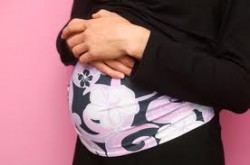Of course, some teens who become pregnant are married, the pregnancy is intentional, and they are excited and happy to welcome their child into the world and care for him or her. But this settled, prepared situation is often not the case when a teen becomes pregnant. Often the unplanned pregnancy is unexpected, the parents are unmarried and may have not had plans to form an enduring relationship, the parents are both still pursuing their education, and they don’t have the means to support themselves, let alone a child.
When people think about teenage pregnancy and adoption, many will immediately imagine circumstances like those in the second scenario proposed above, and they will often have an immediate response that adoption is either a very good or a very bad idea. Some will want to know about the particular circumstances that an individual teen faces before drawing a conclusion.
Those who think that adoption is not a good idea in general as the outcome of a teenage pregnancy often consider the speed and logistical ease of abortion as a resolution as opposed to enduring nine months of pregnancy, giving birth, and the toll this will take, particularly on a very young mother, who is trying to complete her own schooling. They also may consider the demands a teen’s pregnancy places on the rest of her family.
However, those who think that adoption is not a good idea may also come from a very different standpoint. They may believe that a woman—even a young woman—can become a good mother and that whenever possible, keeping the baby in the family should be considered. They may point to the traditional role of the extended family in caring for children and the fact that, through history, many generations of women have begun bearing children at younger ages than is popular now.
Those who think that it’s a good idea in general for a teen pregnancy to end in an adoption often consider the fact that such a young mother may not be emotionally and psychologically ready to give her baby the care it needs. They worry about the impact on the young mother’s schooling and her ability to support herself and her child. They may also take into account the effects on the baby’s father, including both his ability to parent, his education, and his job prospects. These people may also either those who are opposed to abortion on principle or who think that it is such a critical choice with possibly long-lasting psychological effects that they think carrying a child to term and knowing that it has gone to a good home is a better option for the mother (as well as the baby).
Both those who promote adoption and those who advocate keeping a child in the family when possible may also recommend the special schools or residential facilities for pregnant teens—both public and private—that have sprung up to help support a young mother-to-be, both during her pregnancy and in acquiring the skills, knowledge, and maturity that will allow her to be a good mother.
